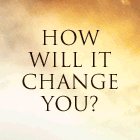 [via producers Joel Eisenberg and Tim Owens]
[via producers Joel Eisenberg and Tim Owens]Columbine Survivor's Film, "April Showers," Gives Back.
All Cities Media and EMO Films Request Your Support.
Spread the Word.
Since 1990, Eric Shaw's All Cities Network has referred hundreds of millions of dollars in business to its membership base. But what is perhaps even more important is the ongoing charity work that is the cornerstone of All Cities' success: Give, give, give ... and you will receive in return. In that spirit, we ask for your support via the most effective means possible; we ask for you to spread the word. If you would care to utilize your databases to reach as many like-minded friends and associates as possible, all the better. So many are suffering ... and All Cities Network can help.
As recession grips the U.S. economy, one of the few industries that have remained constant is filmed entertainment. While studios and production companies may also be down sizing, the fact remains that consumers are still paying, substantially, for movies, regardless of theatrical, home viewing or otherwise. Enter "April Showers," the upcoming Columbine inspired feature written and directed by Andrew Robinson, a survivor of the tragic Colorado school shootings of nearly ten years ago. "April Showers," which opens theatrically April 2009, ten years to the date of the tragic scenario, is set to redefine to very nature of film distribution. To be released overseas by TriCoast International, the film is being released domestically, in theaters across the country in one week intervals, with 50% of producer and investor proceeds going directly to groups and organizations responsible for making a difference in young peoples' lives within the community that film is playing in. These funds will be donated to schools, school districts, programs within schools, scholarships, law enforcement funds, law enforcement offices, community centers, tolerance and acceptance programs. Exhibitors are currently considering donating their portions as well.
This unique distribution model is the brainchild of writer/director Robinson and producer Jenna Edwards. The team behind "April Showers," majority financed by All Cities Media cofounder Joel Eisenberg and Timothy Owens, collectively EMO Films, recognizes that it is imperative to give back to the community in a fashion that will inhibit further like tragedies. Also in the works is a day-and-date digital release platform, and upcoming DVD release. In all instances, a percentage of the proceeds will continue to be donated to worthwhile causes.
We call on all All Cities Network members and prior guests to spread the word about "April Showers." Regardless of whether you have a child in school, know of someone who does or are concerned about safety in our neighborhoods and school systems, we ask for your support. Please visit www.aprilshowersmovie.com for ongoing information about how you can help further our cause. The more people who are aware of our film, the more aid our institutions will receive.
Thank you.
Joel Eisenberg
Co-Founder, All Cities Media
818-891-2223



















 The church and the monastery I described in Furies were based on the
The church and the monastery I described in Furies were based on the 



